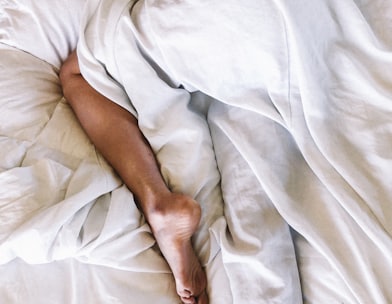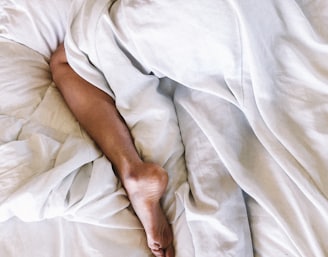How to Get Better Sleep
Find sleep at night evasive? Read this article to get some tips on how to have the best sleep possible!
HORMONAL HEALTHMENSTRUAL CYCLE AWARENESSVALUESWOMEN'S HEALTHSTRESS MANAGEMENT
How to Get Better Sleep


Sleep has a significant impact on both your mental and physical health. During sleep, many processes occur that are vital for brain functioning, growth and development, metabolism, and more. Sleep is also crucial for reducing stress levels and regulating mood. Lack of sleep increases the risk of many chronic diseases, such as diabetes and strokes. Sleep deprivation can also have immediate consequences, such as slowing down your reflexes and reaction time and putting your safety at risk. Whether you have trouble falling asleep, aren’t sleeping long enough, or aren’t having a good quality of sleep, it’s time to fix your sleep and finally get that rest you need. Here are a few ways that you can create better sleep habits.
Put away your electronic devices and any screens at least an hour before bed. The blue light emitted from our cellphone and computer screens disrupts melatonin production, which is the hormone that regulates our sleep-wake cycle. If you need to be on your screen before bed, try wearing blue-light glasses that block this specific light from reaching your eyes.
Cut down on caffeine, especially in the late afternoon or evening. Your caffeine intake might be affecting your ability to fall asleep at night. Try sticking to morning coffees only or switch to a tea with less caffeine instead.
Exercise regularly. We know that exercising is important for your physical health, but it also improves your sleep quality. Not only does it help you burn off some energy so you will feel more tired, but it also decreases feelings of anxiety and depression, which may be keeping you up at night. People who exercise regularly report that it takes less time to fall asleep than those who don’t exercise.
Create a relaxing sleeping environment. Your bedroom should promote feelings of calm and comfort. Clean your bedsheets and change your pillowcases often. Make sure that your bedroom isn’t too hot or cold and that there’s no harsh light coming in. You can also put on an essential oil diffuser or play some relaxing music to help you wind down before bed.
Get at least 7 hours of sleep each night. Many of us aren’t sleeping enough, especially on the weekdays. Then, when we have a day off or the weekend comes, we sleep in and make up for those lost hours. While catching up on sleep does help us feel re-energized, it also messes up our sleep schedule and makes it more difficult for our bodies to create a natural sleep-wake cycle. Going to bed and waking up around the same time each day creates a sleep schedule that your body will get accustomed to.
Build a night routine. Having a consistent nightly routine will help notify your body that it’s time to sleep. Create a routine that you do each night that enables you to relax and get ready for bed, such as reading, having a cup of tea, doing your skincare routine, or taking a shower. This not only helps you relax and wind down from your day, but it also notifies your body that it’s time to sleep. Consistency is key for fixing your body’s natural sleep-wake cycle and, therefore, improving your overall quality of sleep.


